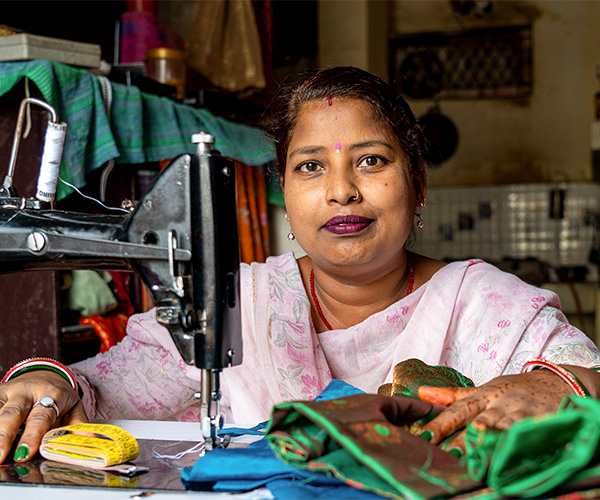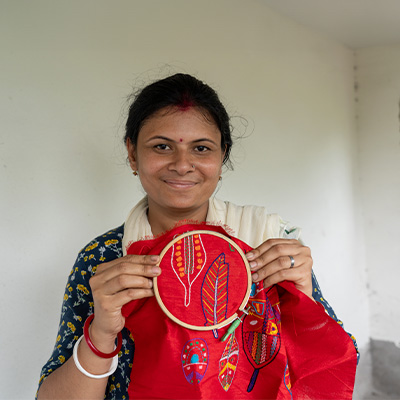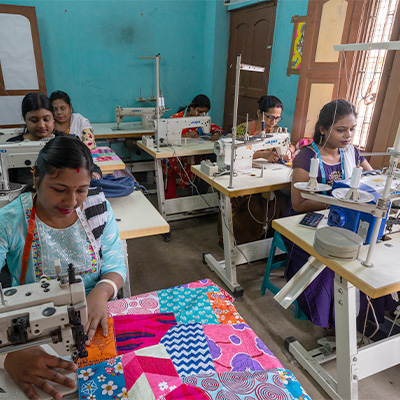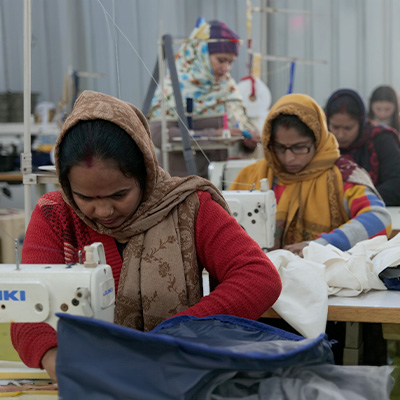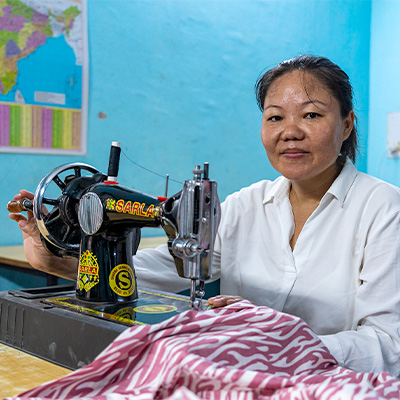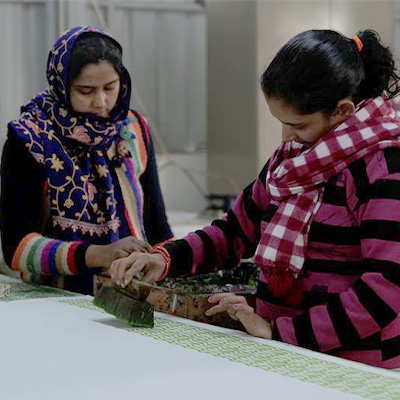Empowering Women Through Skills and Sustainability
Project INDHA, launched in 2005 as an evolution of our earlier initiative Project Karigari, focuses on skill development and provides a platform for women trained under Literacy India to refine their talents. Each year, new women are inducted for upskilling, helping them meet market standards. Many graduates of INDHA move on to become entrepreneurs or join industries, contributing significantly to their communities. Transitioning from basic sewing machines to advanced industrial Jukki machines has improved productivity, enabling women to excel in traditionally male-dominated fields.
